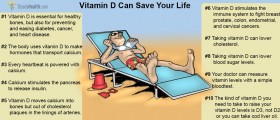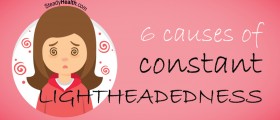I spoke with a doctor before my last episode and was told that my Vitamin D levels were low (16) so I have started taking D3 supplements. My physical exam/blood tests said that there was no anemia or low iron, no thyroid disease, and no signs of diabetes or pre-diabetes.
I'm just curious to know what might be happening because this has been a cause of some of my anxiety as of late. I would also like to know if there are any suggestions to help relieve my symptoms when another episode happens.
Loading...
The symptoms you describe, including dizziness, vertigo, nausea, a heavy feeling in your head, and anxiety, can be caused by various factors. Here are a few possibilities to consider:
-
Benign Paroxysmal Positional Vertigo (BPPV): BPPV is one of the most common causes of vertigo. It occurs when tiny calcium particles in the inner ear become dislodged and disrupt the normal balance signals sent to the brain. Certain head movements, such as rolling over in bed, can trigger intense bouts of vertigo.
-
Low Blood Pressure (Orthostatic Hypotension): Changes in posture, like going from lying down to sitting or standing, can cause a drop in blood pressure. This can lead to dizziness, lightheadedness, and even fainting.
-
Anxiety: Anxiety and panic attacks can cause symptoms such as dizziness, nausea, and a feeling of impending doom. Anxiety can sometimes be triggered or exacerbated by physical sensations.
-
Vitamin D Deficiency: Low levels of vitamin D can lead to various health issues, and while it's unlikely to be the sole cause of your symptoms, it's good that you're addressing it with supplements. Low vitamin D levels can contribute to feelings of fatigue and weakness.
-
Dehydration: Dehydration can lead to dizziness and nausea. Make sure you're staying well-hydrated throughout the day.
-
Other medical conditions: There are other less common medical conditions, such as inner ear disorders, that could potentially cause your symptoms.
Here are some suggestions that may help alleviate your symptoms and anxiety during an episode:
-
Stay hydrated: Make sure you drink enough water throughout the day to prevent dehydration.
-
Avoid sudden position changes: When getting up from a lying or sitting position, do so slowly to minimize the risk of dizziness.
-
Deep breathing exercises: Practicing deep breathing techniques can help reduce anxiety. Focus on slow, controlled breaths.
-
Gentle head movements: If your symptoms are triggered by head movements, try to move your head slowly and deliberately.
Since you've already consulted with a doctor and received some initial tests, it's important to follow up with your healthcare provider to discuss your ongoing symptoms. They may want to explore additional tests or refer you to a specialist, such as an ear, nose, and throat (ENT) specialist or a neurologist, to determine the underlying cause and develop a treatment plan tailored to your needs.
Loading...
















